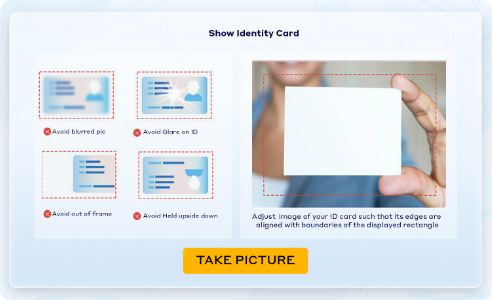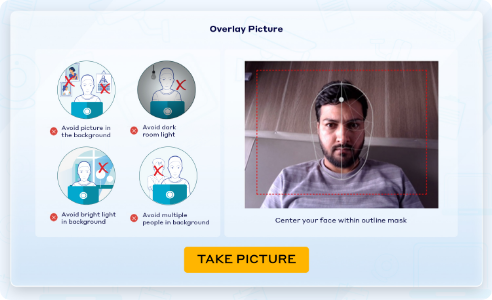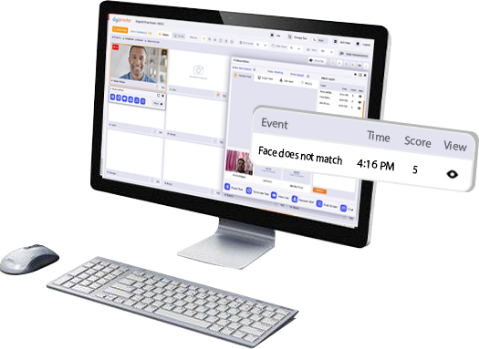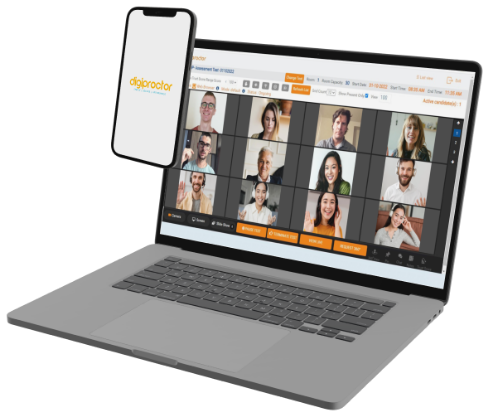The Shift
Towards Digital
Transformation in Education
As an academic year draws to a close, Controllers of Examinations (COEs), Heads of Departments (HODs), and Chief Examiners are prepare for another round of online assessments. Similar to how businesses have adapted to hybrid work environments, "Exams from Home" have become the new standard in academia. As the pandemic subsided, educational experts predicted that the number of online education users in India would reach 9.6 million by 2021, up from 1.6 million in 2016. Today, on a global scale, the United States leads with over 17 million people enrolled in online courses, followed closely by India with 13.6 million learners, according to the World Economic Forum's 2022 report. Coursera's Impact Report reveals that over 20 million new learners registered for courses in 2021, and the shift to remote work drove a threefold increase in new registrations, rising from 71 million in 2020 to 92 million in 2021.
A study by KPMG highlights that reskilling and online certification will remain the most significant segment within the online learning space. The value of the global online learning market is projected to exceed $93 billion by 2025, reflecting the growing demand for flexible, accessible education.
A recent survey by DigiProctor on 'Emerging Trends in Supplementary Secondary & Higher Education in India' indicates that the education sector is recognising the necessity to rethink traditional teaching and examination methods, fully embracing digital transformation. The report categorises the education sector into primary, secondary, and higher education, test preparation, reskilling and certification, and language and hobby-learning course providers.
The rapid shift from traditional classroom instruction to online learning during the pandemic suggests that hybrid learning models are not just a temporary solution but are likely to become a permanent fixture in education.
Learning Management Systems (LMS) have now become essential, with educational institutions across the globe adopting them to deliver synchronous learning experiences that keep faculty and students connected. The reskilling and online certification segment remains the fastest-growing area within the online education market. Online education providers are increasingly partnering with corporations to offer micro-credential programmes in higher education, addressing the evolving skill gaps in the workforce.
Strategic Partnerships
For Cybersecurity Education
In partnership with Ernst & Young, we have collaborated with Manav Rachna International Institute of Research and Studies (MRIIRS) to establish a Centre of Excellence in Cybersecurity. This partnership aims to bring industry-focused knowledge and practical workshops to Manav Rachna's Cybersecurity Skill Development programmes.
DigiProctor’s cutting-edge digital examination technology will play a pivotal role in transforming the assessment processes at MRIIRS. The certifications, awarded by MRIIRS and powered by this partnership, will be recognised by the university, allowing students to leverage these credits towards their academic progression.
All assessments will be conducted using DigiProctor’s remote proctoring capabilities.

How Artificial Intelligence is
Ensuring Test Integrity
The Future Of
Online Examinations
The agility demonstrated by educational institutions in transitioning from traditional classroom instruction to online learning underscores the permanence of hybrid learning models. Following the success of digital education, many educators are reluctant to revert to traditional methods of teaching and assessment.
Online education has moved from being a supplementary or hobby-oriented endeavor to becoming a mainstream channel of learning. However, the shift to online examinations introduces challenges such as impersonation and the use of unauthorized aids, which compromise the integrity of exam outcomes. High-stakes examinations, including JEE and NEET, have faced vulnerabilities, with examination data, particularly question papers, being targeted by hackers or cheating syndicates.

AI-Powered
Online ID Verification and Remote Proctoring
Emerging technologies, particularly Artificial Intelligence (AI), are increasingly being integrated into online exam proctoring solutions to validate the identity of test-takers and deter the use of unauthorised aids during exams. The Examination Office mandates the use of Identity Verification and Proctoring technologies to uphold the integrity of high-stakes assessments.
Identity verification is conducted before the examination to prevent impersonation, ensuring that only the legitimate student is taking the test. Online Proctoring plays a critical role in maintaining examination integrity by preventing students from receiving unauthorised assistance, either from other test-takers or external sources.
As the landscape of education continues to evolve, AI-driven solutions like DigiProctor are setting new standards for the integrity and security of online assessments, ensuring that the shift to digital learning and examinations is both seamless and trustworthy.



Examination Head concerns about Online Identity Verification
Read MoreDigiProctor
AI-Assisted Remote Proctoring
DigiProctor’s Online Examination Management Service delivers an all-encompassing and highly secure proctoring solution, establishing itself as a leader in remote examination technology.
Online Exam Management with Auto Proctoring
AI-Only Proctoring Mode
This mode is ideal for large-scale examinations where the number of candidates far exceeds the available proctors. In this fully automated setting, AI manages the entire proctoring process without human intervention. Students' camera and audio feeds, alongside their screen activity, are analysed by an advanced AI engine. The AI meticulously evaluates these inputs to identify and flag any deviations from acceptable behaviour. The Examination Office can choose to have these incidents recorded for future reference or trigger automatic measures such as pausing or terminating the examination, or adjusting the candidate’s Trust Score.
AI-Assisted Human Proctoring Mode
In this hybrid mode, the proctoring process combines human oversight with AI assistance. Candidates' camera and microphone feeds, as well as their screen activity, are displayed on a remote proctor's dashboard for real-time monitoring. Concurrently, the AI engine assesses these feeds to detect any signs of misconduct. Should the AI identify potential issues, it alerts the proctors through their dashboards, providing an additional layer of scrutiny. This fusion of AI and human supervision enhances the effectiveness and reliability of the proctoring process. DigiProctor’s advanced integration of Machine Learning and Deep Learning algorithms enables the creation of ‘intelligent virtual classrooms’. These virtual environments are continuously monitored by both human proctors and AI systems. Institutions can assign these AI-powered virtual classrooms to candidates and allocate one or more proctors to oversee the examinations. Multiple exams can be conducted simultaneously across different virtual classrooms, with proctors having the flexibility to monitor a single room or move between rooms to address students flagged by the AI for suspicious behaviour, such as those with low Trust Scores.
Human-Only Proctoring Mode
In this mode, proctors rely solely on visual observation, without AI support. This approach is typically reserved for high-stakes exams with a limited number of candidates, where there are sufficient proctors to provide thorough supervision.
Human-Only Proctoring Mode
This mode relies solely on human proctors who monitor the examination process in real-time. Candidates' activity, including camera, audio, and screen feeds, are overseen by trained proctors.
Human-Only Proctoring Mode
This mode involves human proctors with no assistance from AI technology. The proctors are responsible for monitoring all aspects of the exam process manually, ensuring the integrity of the examination.
Trust Scores:
Ensuring Examination Integrity
DigiProctor employs Trust Scores to uphold the integrity of the examination process. A Trust Score is a vital metric indicating the credibility of a candidate's performance and conduct. Candidates start their exam with a Trust Score of 100, which diminishes with each instance of non-compliant behaviour, as detected either automatically by the AI or manually by proctors.
The Examination Office can enforce specific disciplinary actions, including test termination, if a candidate’s Trust Score falls below a designated threshold.


How DigiProctor's
Proctoring Prevents Cheating
In an era where test-takers are increasingly tech-savvy and aware of tools that facilitate cheating, maintaining exam integrity requires advanced solutions. Modern cheating tools can obscure the candidate’s actions from conventional proctoring methods.
DigiProctor counters these challenges by leveraging sophisticated AI technologies designed to detect even the most subtle forms of deceit. This advanced approach ensures that examinations conducted through DigiProctor adhere to the highest standards of fairness and security.
By integrating AI-driven analysis with expert human oversight, DigiProctor offers a robust and multi-faceted proctoring solution that effectively mitigates the risk of cheating, ensuring a trustworthy examination environment.
